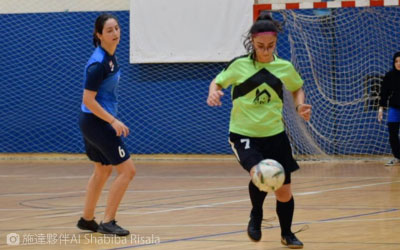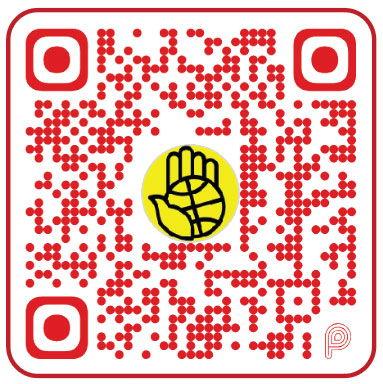Written by: Clara Chiu (Head of Partnership Development)
I recently watched an anime show, ‘Demon Slayer: Kimetsu no Yaiba – Hashira Training Arc’. The family of Tanjiro, the anime’s main protagonist, was attacked by a demon, and only he and his sister survived, but his sister became a demon. To find a cure for his sister and avenge those he’d lost, Tanjiro joined the Demon Slayer Corps. Young comrades were trained to fight the demons. In one episode, their superior, Muichiro, was teaching them swordsmanship. Muichiro was often expressionless and trained them rigorously. His personality and training style made the trainees fearful, frightened and tired. Tanjiro knew that although Muichiro was strict, he was worried about the trainees and did not want them to be killed by demons because of their poor skills. To soften Muichiro’s attitude and ‘save’ his fellows, Tanjiro proposed to compete with Muichiro in throwing paper planes – if Tanjiro won, Muichiro had to treat his trainees with gentleness. Although Tanjiro lost in the end, his comrades joined in the competition one after another, and everyone regained their smiles in the heaviness. The tension between Muichiro and his trainees was also resolved.
I was moved by this scene of Muichiro and trainees throwing paper planes. As you can imagine, under the haze of demons, everyone faces the moment of life and death at any time, and the situation is tense. Muichiro knew there was a vast disparity in strength between the comrades and the demons. He was heavily burdened with everyone’s lives and urgently needed to improve the trainees’ strength. Still, in terms of talent, strength, and combat experience, the trainees were far behind Muichiro, and it was difficult for them to withstand the harsh training. As a result, tension was formed between Muichiro and trainees, and the gap was difficult to bridge. Tanjiro brought the two sides closer with the simplest mini-game – paper plane throwing. This reminds me of ‘Play for Peace in Lebanon’, one of CEDAR’s community peace projects in Lebanon, which uses football as a medium to break the deadlock among Lebanese residents. Like Tanjiro’s paper plane throwing, the partner uses simple games to create peace in an environment full of tension. This method is not limited to the plot of the animation.
In Lebanon, people are accustomed to dividing themselves by ethnic and religious affiliations (there are 18 officially recognised denominations, including the Maronite Christians, the Greek Orthodox Church, the Shia Islamists, and the Sunnis, etc.). Socio-politically, the sectarian system has prevented Lebanon from building a genuine civil society, leading to nepotism and corruption, which have been criticised. Moreover, the conflicts in neighbouring regions caused the influx of refugees and high national debt, resulting in constant political and resource competition among factions and races.
In addition to the problems at the national level, there is also tension at the community level. At CEDAR’s project site, people are of different backgrounds, including locals, Syrians who have fled to Lebanon for many years, Palestinians and other impoverished families. There is a wide range of social problems, such as drug addiction, depression or family breakdown, among young people. The local security problem is so severe that many girls dare not leave alone. Parents cannot pay for their children’s school fees due to financial hardship, and their children are forced to drop out of school and become child labourers to earn money to support their families. The country has a long way to go, and people are full of physical and mental pressure, which is also more likely to lead to domestic violence. Peacebuilding, therefore, brooks no delay.
CEDAR’s partner decided to use football as a medium to build peace. Why would they take football as a starting point for such a grand issue? A member of our partner stated that peacebuilding is not just a ‘job’ but an attitude to life: ‘The way you live is how you play, the way you play is how you live’. Therefore, through football, a popular sport, our partner provides football training combined with courses and workshops on ‘Conflict Management’, ‘Ways to Forgive’, and ‘Anger Management’, so that young people can put what they have learned in the football field and build peace in the community through social services. The partner believes the football field is one of the best places to practice peace and restoration.
CEDAR’s partner decided to use football as a medium to build peace. Why would they take football as a starting point for such a grand issue? A member of our partner stated that peacebuilding is not just a ‘job’ but an attitude to life:
The way you live is how you play, the way you play is how you live.
Therefore, through football, a popular sport, our partner provides football training combined with courses and workshops on ‘Conflict Management’, ‘Ways to Forgive’, and ‘Anger Management’, so that young people can put what they have learned in the football field and build peace in the community through social services. The partner believes the football field is one of the best places to practice peace and restoration.
Our partner recruits children and young people aged 5 to 28 to receive football training and a ‘Forgiveness and Peace Journey’ workshop to promote peaceful coexistence among people of different faiths and ethnicities. Participants from various backgrounds can work towards the same goal in a football match and learn communication, collaboration, problem-solving, and conflict in this team sport. Whenever a team participates in a league or tournament, these teams, made up of different community members, can share a message of peace with new contacts.
Apart from the training for children and youth, football coaches and parents of football players also receive training. Our partner arranges for coaches to participate in peacebuilding and psychosocial health training every week and provides one-on-one follow-up and mentoring to the coaches. For parents of the players, our partner teaches them parenting skills, leads them to fitness activities, and organises forgiveness and inner healing activities to take care of their family relationships and physical, mental and spiritual needs, reduce the stress of life, and improve the family relationship.

Tanjiro is a fictional character, and the creator can be creative and imaginary to use him to resolve conflicts. However, the creator used folk gadgets, which become a tool to break down the interpersonal barriers at a time of survival struggle and relationship tension. Similarly, in the context of political instability in the Middle East and ethnic struggles faced by national communities, our partner still uses ‘Play’ as a medium for peacebuilding, which brings me to reflect on the fact that sometimes complex problems do not necessarily have to be solved in more complicated ways. Keeping the Lord’s simple, innocent heart may be the cure for the problems of adults.
donation method
(Please specify: ‘Development & Advocacy’)
Cheque
Please make it payable to CEDAR FUND
Direct Deposit
HSBC: 004-600-385678-001
BEA: 015-185-68-00931-7SSA
BOC: 012-581-2-020114-7
DBS: 016-478-001364162
Faster Payment System
FPS ID: 3354016 or scan the below code in the online banking
After donation, please send a completed Donation Form, enclosing with cheque, bank-in slip or screenshot of successful payment along with your name, contact phone number and mailing address to us via mail, email or WhatsApp.
Address: CEDAR Fund, G.P.O. Box 3212, Hong Kong
Email: sharing@cedarfund.org
WhatsApp (for donation matters only): 5160 7549
- CEDAR is an approved charitable institution and trust of a public character under section 88 of the Inland Revenue Ordinance. Please visit Inland Revenue Department website for details.
- CEDAR Fund will issue a receipt for a donation of HK$100 or above for tax deduction. For a donation of less than HK$100, please get in touch with us to issue a receipt.
- Please DO NOT fax any donation information.



